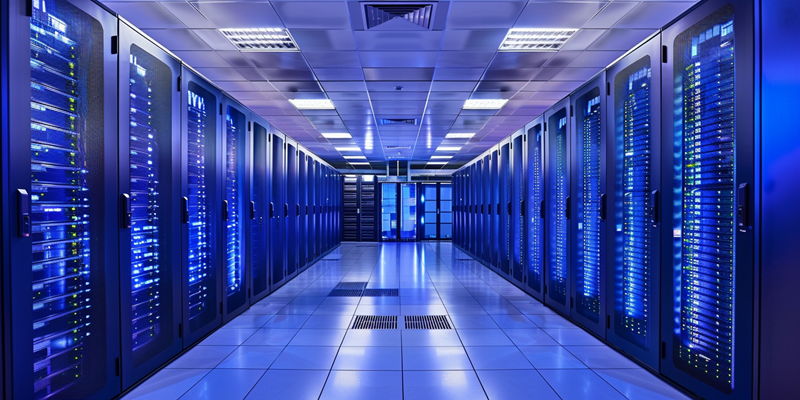In a bold stride toward technological advancement and sustainability, Kakao, South Korea’s Internet behemoth, has taken a significant leap forward with the opening of a new data center in Ansan, Gyeonggi Province. This initiative is more than a mere structural addition; it’s a testament to Kakao’s unwavering commitment to service stability so deeply enmeshed in the daily lives of South Koreans. Situated in the vicinity of Seoul, this development marks a pivotal point in Kakao’s journey as it fortifies its presence and looks toward a future driven by innovation and resilience.
The Strategic Impetus Behind Kakao’s Expansion
Building a Stable and Sustainable Foundation
Kakao’s Ansan Data Center is not a small-scale project; it spans an impressive 510,000 square feet and is geared up to host a staggering number of 120,000 servers. As the first data center built in-house by the company, it stands as a physical manifestation of Kakao’s strategic foresight. This new fortress of digital capacity is a clear indicator of Kakao’s resolve to provide unshakable foundations for its plethora of services. Central to this new development is the intent to back its expanding endeavors in artificial intelligence (AI) and big data analytics.
The Ansan Data Center comes in the wake of a grave service disruption Kakao experienced in the past, prompted by a fire in an SK Group data center. Having learned from this incident, Kakao has incorporated superior safety features in the new center, including a sophisticated four-stage fire extinguishing system. This proactive approach to risk mitigation underlines Kakao’s philosophy of learning and evolving from past experiences to build systems that are not just efficient but also resilient against potential threats.
Accelerating AI and Cloud Services
On the cusp of technological exploration, Kakao is channeling its resources to harness the potentials of AI and big data. The Ansan Data Center is a foundational step in this direction, designed to bolster the company’s research and development initiatives. Crystallizing its vision to become a vanguard in these domains, the center will play an instrumental role in the deployment of a formidable corporate cloud service. This move is part of a broader striving to maintain a dynamic and responsive stance in an industry that’s perpetually on the edge of transformation.
The significance of the data center can also be weighed in terms of how it anticipates the future. Kakao is not resting on its laurels post the establishment of this data center but is already eyeing the construction of another, with a heightened emphasis on AI technologies. CEO Chung Shin-a has placed great emphasis on the safety and reliability of this venture, enunciating the commitment to erect what is aimed to be South Korea’s ‘safest data center’. This forward-thinking approach echoes the sentiments of a tech industry that is becoming increasingly reliant on proprietary data infrastructure.
The Foresight in Kakao’s Tech Evolution
Pioneering Sustainability in Data Management
Recognizing its environmental responsibilities, Kakao has integrated sustainability into the heart of its operations. The Ansan Data Center is laced with solar panels, reflecting a merger of cutting-edge technology with green practices. These efforts, while augmenting the ecological footprint of the company, equally underscore a commitment to future generations. Adopting sustainable technologies is not just a mere regulatory conformity for Kakao, but a deeply ingrained value, showcasing its role as an industry pathfinder.
This step is a clear nod to the rising acknowledgment within the tech sphere that sustainability is no longer a buzzword but a critical aspect of modern infrastructure. Companies like Kakao are positioning themselves at the forefront of this revolution by crafting facilities that are not just powerful and secure but also conscientious of their environmental impact.
Signifying a Competitive Technological Proposition
Kakao, a powerhouse in South Korea’s Internet scene, has taken a monumental step by unveiling its latest data center in Ansan, Gyeonggi Province. This showcases a resolute stride toward both technological progress and environmental stewardship. This significant endeavor extends beyond mere infrastructure; it symbolizes Kakao’s solid promise to provide unwavering service stability, a vital aspect of everyday life for the South Korean populace. Positioned strategically near Seoul, this landmark undertaking signals a critical juncture in Kakao’s narrative as it cements its role in the tech arena and navigates a path oriented by forward-thinking and robustness in a digitally-centric age. This move underlines the company’s determination to continually push the boundaries of innovation while maintaining a strong backbone for its services that have become integral to the digital tapestry of South Korean society.

